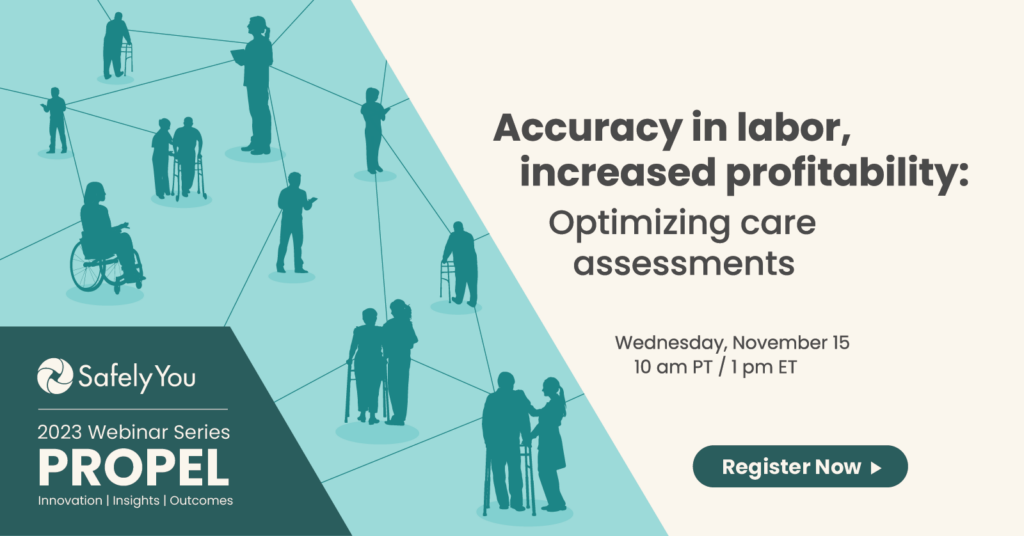For our June webinar, we were joined by AI pioneer Dr. Trevor Darrell, founder and co-director of the UC Berkeley Artificial Intelligence Research Lab, as well as Dr. Elizabeth Edgerly, Executive Director of the Alzheimer’s Association’s Northern California/Northern Nevada Chapter, to talk about breakthroughs in AI and Alzheimer’s care. We’re sharing the three key takeaways, and a link to watch the webinar, so you don’t miss a moment of this critical conversation. It’s what every clinician should know about what now and what’s next for AI and dementia care.
1. AI is becoming more robust and reliable, and will offload repetitive tasks for caregivers
We’re seeing very rapid advances in the ability of AI systems, as both their capabilities and dependability are increasing. And future iterations of tools like ChatGPT will evolve to offer more reporting and support. So, caregivers will be able to receive a video recording of what’s happening in an environment, as well as a natural language summarization, aiding reporting requirements, reducing repetitive tasks, and increasing productivity.

“When I go into a hospital, or I go into these facilities, I see the burden of paperwork that is on these people doing all this good work. And automating that, I think, is quite possible.”
Dr. Trevor Darrell, Founder and Co-director, UC Berkeley Artificial Intelligence Research Lab
2. AI can help those living with Alzheimer’s maintain some independence longer
The ability of AI to complete sentences or fully compose items like emails—and determine differences in writing styles—will help those living with Alzheimer’s retain some of their independence. As cognition declines and word recall becomes more difficult, technology can fill in, and its ability to recognize the writing style of one person compared to another means it can develop content that feels individually created, helping this population continue to communicate as the disease progresses.

“I’ve been amazed at how it captures my tone of writing an email…And it’s very helpful if you start to struggle with language. That’s something AI can absolutely help with. It might help buy you a year or two of being able to communicate with people…”
Dr. Elizabeth Edgerly, Executive Director, Alzheimer’s Association, Northern California/Northern Nevada Chapter
3. AI breakthroughs are critical to elevating Alzheimer’s care, from early detection to fall detection
Advances in AI mean improved dementia care, and better outcomes for those living with Alzheimer’s. This technology’s ability to summarize vast amounts of data can help determine patterns and support critical early diagnosis, which can help clinicians, health systems, and families begin planning care sooner. Those with cognitive impairment fall twice as often as those without—about four times a year—and innovations like SafelyYou leverage AI to detect and prevent falls, reducing falls by 40% and fall-related ER visits by 80%, keeping residents safer in their communities, reducing costs, improving quality of care, and providing greater peace of mind.

“It took me a year to support with our first 22 falls, now we're starting with almost 10,000 a month. Just during this conversation, we have helped folks avoid emergency room visits, get the right care that needed, understand unmet needs. And when I think about technology, in the whole topic of today AI for good, something that technology really does bring for me, it's hope, like there is a really powerful set of tools here. And the flip side of how many of us are impacted by Alzheimer's means there are a lot of people that are wanting to build a better world for people with Alzheimer's disease. And you're going to see our understanding of Alzheimer's and what we can provide for people with Alzheimer's dramatically change over the next 10 or 20 years.”
George Netscher, Founder & CEO, SafelyYou
For the complete conversation, watch the webinar here. To learn more about how SafelyYou’s world-leading AI and remote clinical support is transforming care for those living with Alzheimer’s and other forms of dementia, including reducing fall rates, empowering caregivers to provide higher-quality care, and providing greater peace of mind for families, reach out to us at [email protected].






